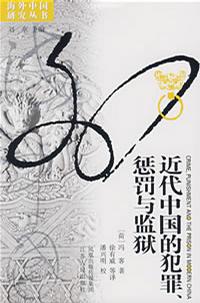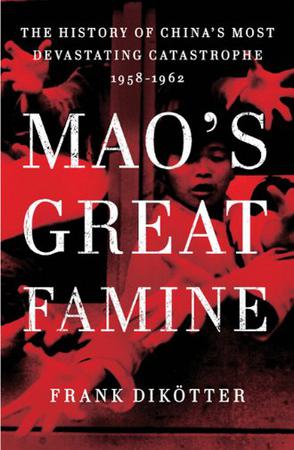欢迎来到相识电子书!
标签:冯客
-
近代中国之种族观念
在本书中,“种族与其说是强调不同民族的生理方面,毋宁说是强调它们的社会文化方面。”在我们的印象中种族是与“种族歧视”、“种族偏见”联系在一起的,而当讨论“近代中国之种族观念”时,因为近代中国之内忧外患的特殊历史,种族观念最重要的表现形式是民族主义,所谓“中华民族,到了最危险时刻”,人们思考和行动的主要方向就是“保种强国”。但是,本书所论没有这么简单,它追述了近代中国种族观念的复杂历程,展示了近代中国种族观念的复杂形态。种族是“作为文化的种族”、“作为类型的种族”、“作为宗教的种族”“作为民族的种 族”、“作为种类的种族”、“作为种子的种族”和“作为阶级的种族”。“种族观念”是近代中国的核心观念之一,对它的思考无疑会丰富我们看待那段历史的眼光,特别是这种民族主义的意识形态在今日仍还有着重要的影响。 -
近代中国的犯罪、惩罚与监狱
《近代中国的犯罪惩罚与监狱》是将近代中国的刑罚学、犯罪学、法制史、监狱学和监狱史作为一个整体加以研究的第一部具有开拓意义的著作。在详尽地回顾近代欧美和日本刑罚学的发展历程的基础上,此书将极为丰富的文献资料和档案资料编织为一个有机的栩栩如生的整体。近代中国监狱内中外囚犯的职业训练、卫生指导、道德指导、暴乱与逃跑、死刑、外籍罪犯的待遇、监狱的建筑,乃至鲜为人知的监狱管理者的喜怒哀乐,犹如一幅幅生动的画卷,形象地展现在我们面前。传统文化结构的高度稳定性和连续性,以及这些特性对民国时期的社会进程产生的重大而深远的影响,在《近代中国的犯罪惩罚与监狱》中也得到了有力的证明。 -
Mao's Great Famine
"Between 1958 and 1962, China descended into hell. Mao Zedong threw his country into a frenzy with the Great Leap Forward, an attempt to catch up to and overtake Britain in less than 15 years The experiment ended in the greatest catastrophe the country had ever known, destroying tens of millions of lives." So opens Frank Dikötter's riveting, magnificently detailed chronicle of an era in Chinese history much speculated about but never before fully documented because access to Communist Party archives has long been restricted to all but the most trusted historians. A new archive law has opened up thousands of central and provincial documents that "fundamentally change the way one can study the Maoist era." Dikötter makes clear, as nobody has before, that far from being the program that would lift the country among the world's superpowers and prove the power of Communism, as Mao imagined, the Great Leap Forward transformed the country in the other direction. It became the site not only of "one of the most deadly mass killings of human history,"--at least 45 million people were worked, starved, or beaten to death--but also of "the greatest demolition of real estate in human history," as up to one-third of all housing was turned into rubble). The experiment was a catastrophe for the natural world as well, as the land was savaged in the maniacal pursuit of steel and other industrial accomplishments. In a powerful meshing of exhaustive research in Chinese archives and narrative drive, Dikötter for the first time links up what happened in the corridors of power-the vicious backstabbing and bullying tactics that took place among party leaders-with the everyday experiences of ordinary people, giving voice to the dead and disenfranchised. His magisterial account recasts the history of the People's Republic of China.
热门标签
下载排行榜
- 1 梦的解析:最佳译本
- 2 李鸿章全传
- 3 淡定的智慧
- 4 心理操控术
- 5 哈佛口才课
- 6 俗世奇人
- 7 日瓦戈医生
- 8 笑死你的逻辑学
- 9 历史老师没教过的历史
- 10 1分钟和陌生人成为朋友



